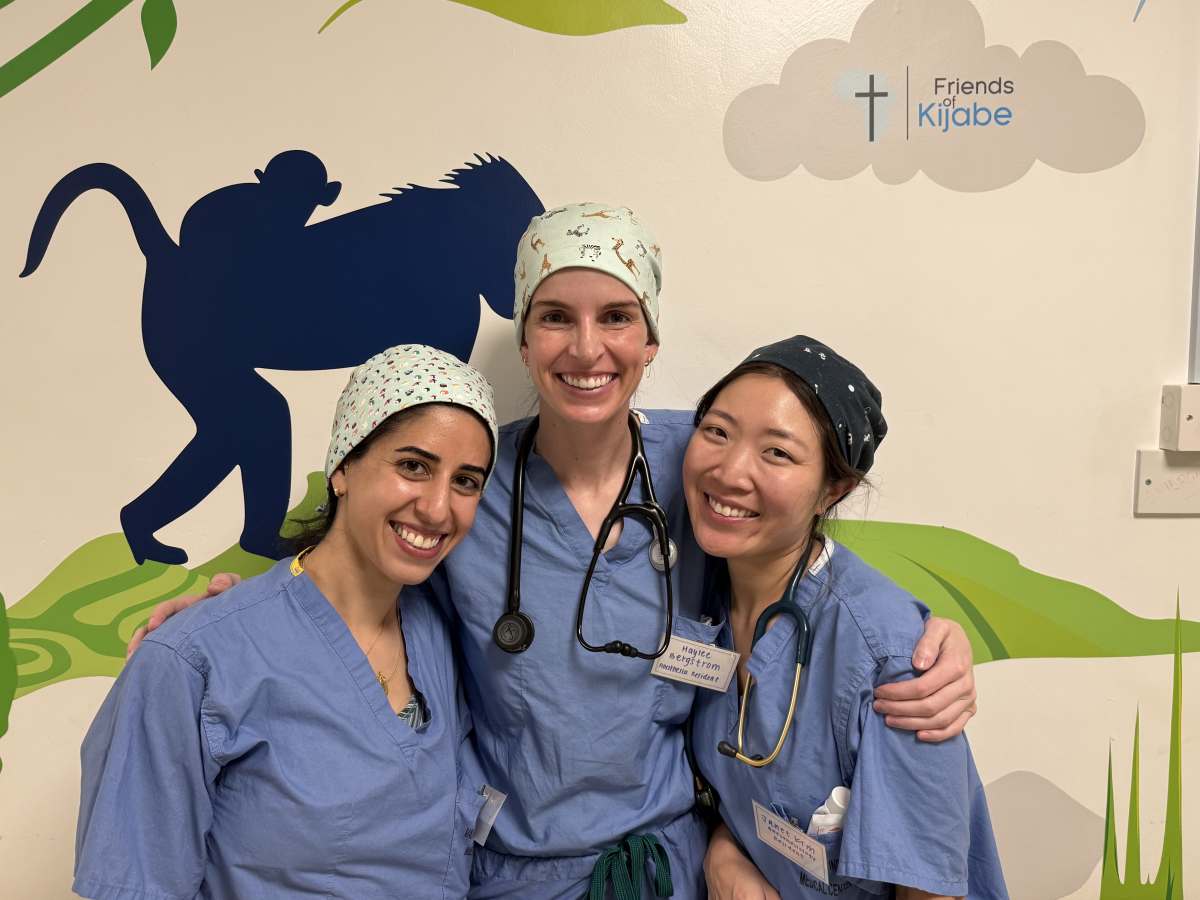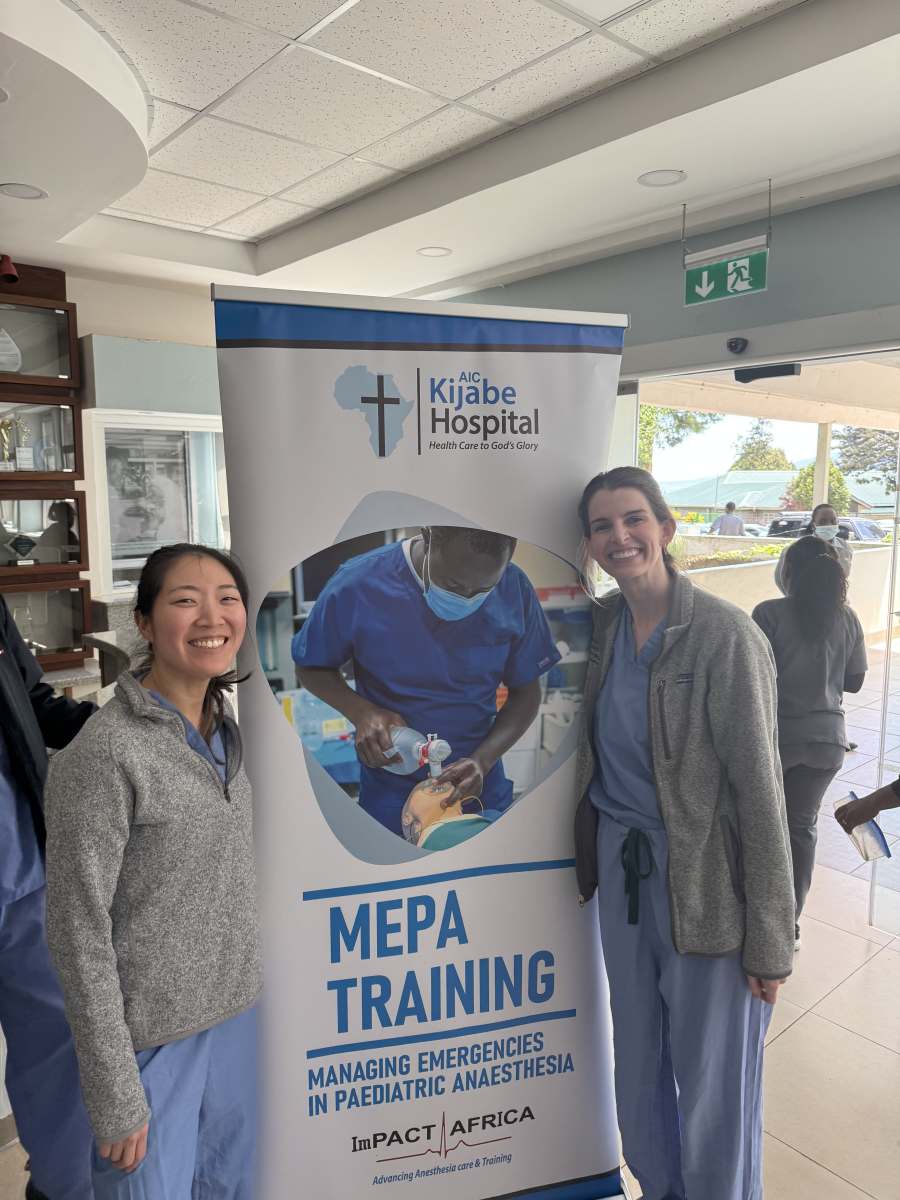In April, I will spend a month in Kijabe, Kenya, to train healthcare professionals in safe anesthesia practices and enhance their ability to work in multidisciplinary teams. The project, based at AIC Kijabe Hospital, aims to strengthen anesthesia care, particularly for maternal and surgical patients in underserved regions.
Kenya currently faces a significant shortage of trained anesthesia providers. With a population of 54 million, only about 700 anesthesia providers are available, mostly concentrated in urban areas. This shortage, combined with limited training opportunities, contributes to discrepancies in anesthesia care, particularly in rural regions like Kijabe. The World Health Organization has identified suboptimal anesthesia care as a major factor in maternal and neonatal morbidity and mortality.
Our training will focus on equipping local healthcare providers with updated knowledge and skills in anesthesia, including regional techniques, airway management, and perioperative care. We will also emphasize team-based care, ensuring that anesthetists, nurses, and other healthcare professionals can collaborate effectively to improve patient safety. This hands-on approach will help address common anesthesia challenges in resource-limited settings, ensuring providers are equipped to manage complex surgical cases.
By empowering local healthcare professionals, this project will improve anesthesia safety and accessibility in Kijabe and surrounding areas. Strengthening team-based care and anesthesia skills will contribute to better patient outcomes, particularly for maternal and surgical patients. Ultimately, this initiative will help reduce maternal and neonatal mortality rates and build a sustainable model for ongoing anesthesia education in Kenya.
The population served by this initiative in Kijabe, Kenya, primarily consists of individuals from underserved rural areas with limited access to quality healthcare, including anesthesia. The project targets the local population of Kijabe and surrounding communities, where healthcare infrastructure is often inadequate, and access to trained anesthesia providers is scarce.
A significant portion of the population consists of pregnant women and newborns. Maternal and neonatal health in Kenya remains a major concern, with maternal mortality rates significantly higher than in developed countries. The maternal mortality ratio in Kenya is around 342 deaths per 100,000 live births, and neonatal mortality is 22 per 1,000 live births. These disparities are compounded by limited access to skilled anesthesia professionals, particularly for high-risk pregnancies and surgeries requiring general or regional anesthesia.
In addition, the population served includes patients requiring surgery, trauma care, and elective procedures, where the lack of trained anesthesia providers delays or limits access to essential care. Kijabe's AIC Hospital, which serves as the project’s base, is a critical healthcare facility for this region. It provides specialized care to individuals who may otherwise have to travel long distances to seek treatment, which is often financially and logistically burdensome.
By equipping local healthcare professionals with skills to safely administer anesthesia, this project will improve maternal, neonatal, and surgical outcomes, reduce complications, and ensure timely access to anesthesia services. Ultimately, the initiative will strengthen healthcare delivery, providing the underserved populations of Kijabe and surrounding areas with more equitable and effective medical care.
This project in Kijabe, Kenya, addresses a critical gap in anesthesia care, which significantly impacts patient safety, particularly maternal and neonatal health. The shortage of skilled anesthesia providers contributes to high maternal mortality and neonatal morbidity rates in Kenya. By training qualified healthcare professionals in safe anesthesia practices, we aim to enhance the safety of surgeries and childbirth, directly reducing preventable deaths and complications.
The initiative will focus on building local capacity for anesthesia care in Kijabe and surrounding areas. Through the training of anesthesia providers and a strong emphasis on multidisciplinary teamwork, the project will empower healthcare professionals to manage high-acuity cases independently. This will ease the burden on urban hospitals, improving overall healthcare delivery. The goal is to create a sustainable model that can be replicated across other underserved areas in Kenya, broadening the reach of quality anesthesia care.
Upon my return, the lessons learned will be shared with my department and incorporated into future initiatives. I will integrate the insights gained from this experience into my work in obstetric anesthesiology and fellowship, helping improve the care we provide to diverse patient populations. I will also mentor others interested in global health, further extending the impact of this training.
Funding for this project is crucial, covering my airfare, travel expenses, and logistics, ensuring the feasibility of this initiative. Without this support, the project would not be possible, delaying the opportunity to improve anesthesia care and reduce maternal and neonatal mortality. This funding will help ensure the long-term impact on the Kijabe community and facilitate the continued dissemination of knowledge upon my return. I appreciate your consideration of my application.






Thanks to the support of Doximity, I had the opportunity to spend a month in Kijabe, Kenya, working with an incredible group of anesthesiology residents, KRNAs (Kenyan Registered Nurse Anesthetists), and anesthesia providers from across the world.
While I was there, I helped lead simulation sessions focused on managing emergencies in the operating room. These sessions included local residents as well as participants in the MEPA program, which stands for Managing Emergencies in Pediatric Anesthesia. The program brought anesthetists and anesthesiologists from all over Kenya to train in pediatric crisis scenarios.
We also organized a hands-on ultrasound workshop for the residents. We focused on point-of-care ultrasound, or POCUS, and taught techniques for ultrasound-guided IV placement, regional anesthesia, and basic diagnostic use.
In addition to teaching, I collected data for an ongoing research study about labor and pain among women in the region. This work supports the future development of a spinal analgesia program for labor, which could significantly improve maternal care by expanding access to pain relief during childbirth.
The residents, KRNAs, and KRNA students were engaged, motivated, and eager to learn. It was inspiring to see their growth and dedication. Educating others in this setting has an exponential impact, as the skills and knowledge shared are passed on to colleagues, students, and patients for years to come.
The impact on patients was clear. Improved provider skills meant safer care, quicker response times in emergencies, and more compassionate pain management. I am honored to have played a small part in that progress. Personally, this experience deepened my commitment to global health and reminded me of the importance of collaboration, adaptability, and humility in medicine.
I am very grateful to Doximity for making this experience possible and for supporting global health education that can lead to meaningful change.